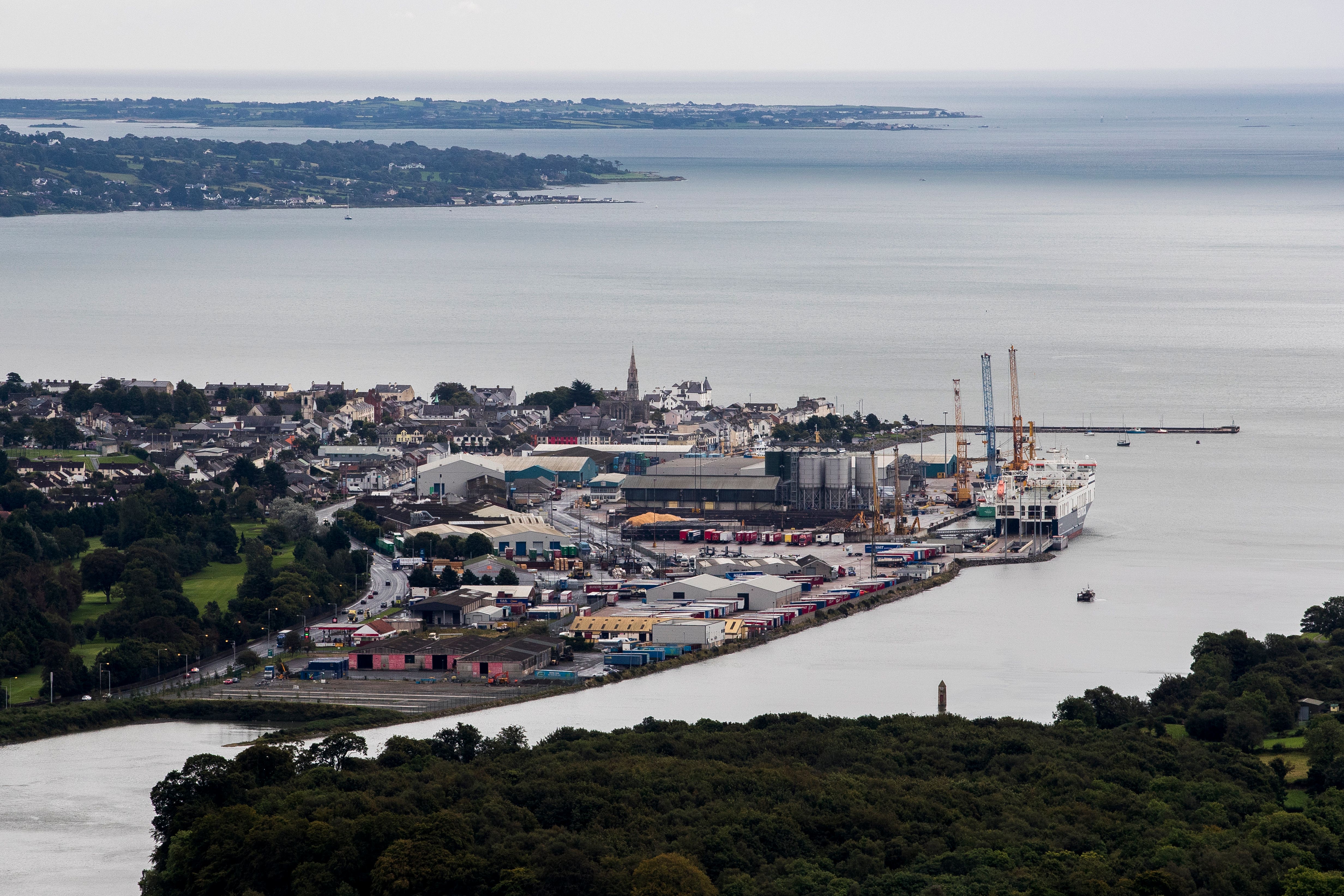Stormont committee will examine post-Brexit trading arrangements
Under post-Brexit trading rules, aspects of EU law still apply in Northern Ireland.

Your support helps us to tell the story
From reproductive rights to climate change to Big Tech, The Independent is on the ground when the story is developing. Whether it's investigating the financials of Elon Musk's pro-Trump PAC or producing our latest documentary, 'The A Word', which shines a light on the American women fighting for reproductive rights, we know how important it is to parse out the facts from the messaging.
At such a critical moment in US history, we need reporters on the ground. Your donation allows us to keep sending journalists to speak to both sides of the story.
The Independent is trusted by Americans across the entire political spectrum. And unlike many other quality news outlets, we choose not to lock Americans out of our reporting and analysis with paywalls. We believe quality journalism should be available to everyone, paid for by those who can afford it.
Your support makes all the difference.The Assembly’s new Stormont brake committee will have scope to assess the impact of Northern Ireland being left in regulatory limbo if it diverges from both EU and UK laws.
Members of the Windsor Framework Democratic Scrutiny Committee were told that their work will involve assessing the consequences of applying a new or replacement EU law in Northern Ireland and also the potential ramifications of not applying it.
Under post-Brexit trading rules, aspects of EU law still apply in Northern Ireland.
The UK and EU’s Windsor Framework on the trading arrangements includes a democratic oversight function for Stormont’s Assembly, designed to give MLAs a voice in respect of proposed changes to European laws.
The Stormont brake is a mechanism that allows a minimum of 30 MLAs to refer a proposed law change to the UK Government.
The Government would then make an assessment of the proposed changes on Northern Ireland and could ultimately veto its application in the region.
The Assembly committee has been established as part of the scrutiny function and its task will be to examine evidence in relation to potential changes in EU regulations and how they would affect Northern Ireland.
At the committee’s inaugural meeting on Thursday, an official told members that the issue of “trivergence” may arise.
Divergence would emerge when the application of a new EU regulation was vetoed in Northern Ireland, leaving the existing EU law in place while the bloc applies the new version.
However, if the UK government also then diverged Great Britain from the old EU law, there would be “trivergence”, as Northern Ireland would be the only place where the old rules still applied.
Members were told that the possibility of trivergence was not covered in the regulations that established the committee as part of the democratic scrutiny element of the Windsor Framework.
However, the official said it was within the gift of the committee to examine the implications of applying a new or replacement EU act in Northern Ireland, and not applying it.
DUP MLA Joanne Bunting had asked the official to clarify the committee’s powers in respect of that situation.
The official said: “So there is in theory this potential, and academics have done quite a bit of work on it, for there to be dual divergence or trivergence where Northern Ireland finds itself in a position where the regulations that apply here only apply here and neither apply in GB nor in the EU.”
Ms Bunting suggested that in such a scenario the UK government would take action to ensure Northern Ireland was not negatively impacted.
“In the example of trivergence, in circumstances where the break is successfully pulled, at that point then surely the UK government or the NI Assembly can legislate to make sure that everything is fine in Northern Ireland,” she asked.
The official said that even when the brake was applied, members of the Stormont Assembly could still vote, via an applicability motion, that the new or replacement law should be applied in Northern Ireland.
Sinn Fein member Emma Sheerin suggested the committee might be faced with choosing the least worst option.
“In that sort of scenario it may be the case that we decide something does have significance or that it does significantly impact or change, but we decide to allow that to proceed, and not to apply the break, because the alternative would be worse in that we would be leaving ourselves behind almost,” she said.
Alliance MLA Patrick Brown suggested the committee ask academics who have researched trivergence to present evidence to members.
“We are, as I’m understanding it, to a degree in unchartered territory here,” he said.
“I’m not sure if there are other regions or areas that are subject to a similar issue of trivergence.”
Ulster Unionist committee member Steve Aiken said it would be important to clearly set out the committee’s function in respect of assessing any change in EU law, so to minimise the potential for a future legal challenge.
“We need to actually quite define quite clearly what the concept of trivergence means,” he said.
“Because, as has already been pointed out by Emma, there might be cases where we decide that that is potentially a breach but, because of the impact that it’s likely to be, we decide not to action on it.
“Or we might do exactly the opposite.”